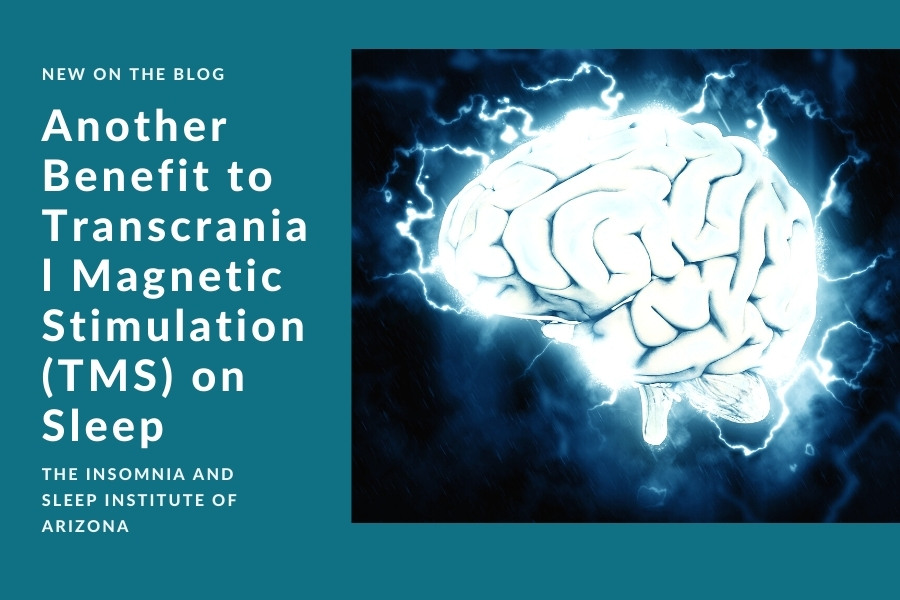TMS has been making headlines when it comes to treating mental conditions like depression and anxiety—and there are even some studies showing that it can help with insomnia, too. The TMS Institute of Arizona provides conservative, safe, and effective methods for addressing your insomnia, whether you want to avoid medications or wean off them. TMS can also be an excellent complement to other insomnia treatments like cognitive behavior therapy for insomnia (CBT-I) and healthier sleep hygiene practice.
This quick, non-invasive treatment manipulates the brainwaves to treat a myriad of conditions and has quickly become a favored alternative to medications. Pharmaceuticals to treat mental health disorders (as well as insomnia) understandably want to be avoided by many patients. These drugs can lead to dependency and side effects in some cases. In fact, a common side effect of depression medication use is insomnia. However, a recent study showed that TMS for depression is effective while not disturbing a patient’s sleep.
How Transcranial Magnetic Stimulation Works
TMS stimulates the brain’s frontal lobe, which is linked to mental health as well as insomnia. A study recently published in Science Daily showed that not only does TMS not interfere with sleep for those who receive it for depression, but “People’s sleep gets better as their depression improves.” Both depression and anxiety can disrupt sleep, making it a bit of a catch-22 when patients use medications to treat these disorders.
The study includes a secondary analysis at 23 sites and includes 301 patients. The goal of the original analysis was to compare anti-depressive effects of TMS in those who were susceptible to pharmaceuticals. The participants were split into two groups: those who received TMS and no medications, and those who received a placebo TMS treatment and no medications. Subjects received 40 minutes of TMS five days per week for six weeks. The initial findings were published in a 2007 issue of Biological Psychiatry and paved the way for the FDA to approve TMS as a depression treatment. During the secondary review, the findings were reaffirmed.
Insomnia and TMS
It is important to note that the original and secondary analyses were not considering TMS as an insomnia treatment, but rather (partially) gauging if TMS affected sleep in one way or another. The researchers found that TMS for depression didn’t cause insomnia or sleepiness, but then again, the TMS treatments were calibrated strictly for depression. The exact approach to TMS will vary based on what disorder is being treated.
The research also showed that neither group was more likely to ask for medication to treat either insomnia or mental health issues during the study. According to the authors, this secondary analysis may help in alleviating any worries that there are negative sleep-related side effects with TMS.
Sleep Problems and Medications
One of the most common issues with antidepressants is their tendency to cause insomnia and other sleep issues. Those diagnosed with major depressive disorder also struggle with insomnia at disproportionate rates (ranging from 50 – 90 percent). In some cases, depressed patients may also say that they sleep too much (a well-known symptom of depression). Knowing that TMS does not encourage insomnia or oversleeping is great news as more and more physicians look to options outside of medications.
Researchers note, one of the many bad things about depression is that often patients cannot sleep. We think it’s a significant symptom. If patients can’t sleep, it really adds to their distress, and even increases the likelihood of suicide … our study adds to the evidence showing that TMS has remarkably few side effects.
The Brain Function Help You Need
The goal in an ideal treatment is to restore “normal” brain function, whether it comes to treating depression, anxiety, insomnia, or a combination of all three. The prefrontal cortex manages mood and high-order functioning in a fast and easy treatment. Patients simply sit in a comfortable chair while they receive short pulses of a magnet (MRI strength) to the outside of the forehead. It is a pain-free process that increases brain cell activity.
Major depressive disorder affects millions of Americans, approximately 6.7 percent of the adult population. It is also the leading cause of disability for those 15 – 44 years old. Getting help is critical for any issue, including depression and insomnia. If you are struggling with the latter, get in touch with us today. Call the TMS Institute of Arizona directly, or complete the online contact form now.





